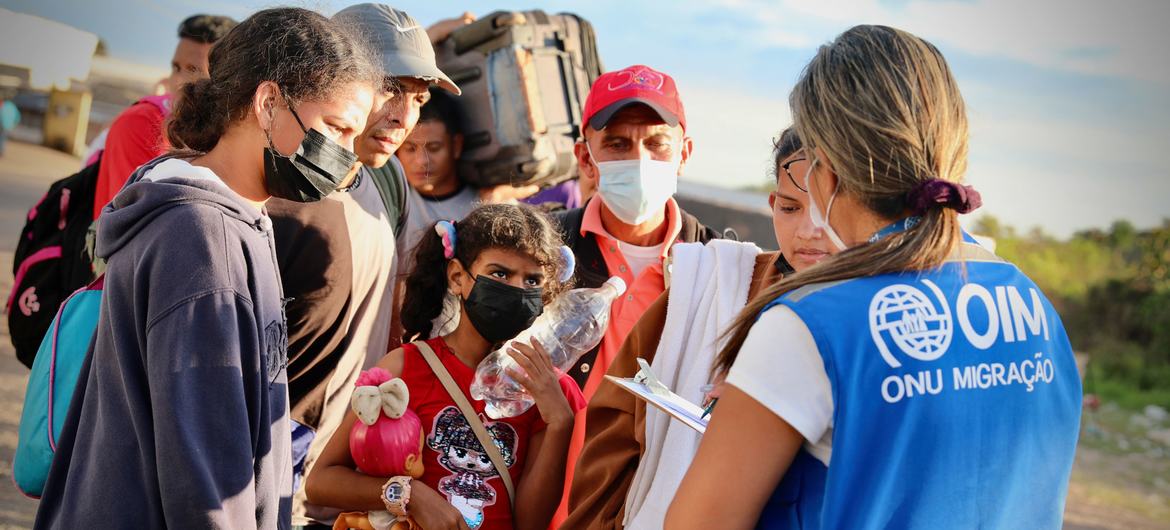
With the deepening development of globalization, international personnel mobility is becoming increasingly frequent, and countries' attention to entry management is also constantly increasing. Recently, the Brazilian government announced the implementation of a series of new entry regulations, particularly aimed at controlling the influx of immigrants from North America. This policy adjustment not only reflects Brazil's emphasis on national security and social stability, but also reflects Brazil's determination to seek balanced development in the context of globalization.
On August 21st local time, according to Reuters, the Brazilian government stated that due to an increasing number of immigrants using South American countries as stopovers to travel to the United States and Canada, Brazil will tighten its visa free entry regulations starting next week. And a statement was issued stating that foreign tourists who travel to other countries without a Brazilian visa must continue to their destination or return to their own country.
In recent years, the North American region (especially the United States and Canada) has long been affected by various factors such as changes in economic and social conditions, which have led to some people's willingness to move. Many North Americans, considering work, life, or safety, choose to turn their attention to South America, among which Brazil, as a major South American country, has become the preferred destination for many people. However, this trend has also brought unprecedented immigration pressure to Brazil, as well as new adjustments to the local job market, educational resources, and social services.
In order to effectively respond to the influx of North American immigrants, the Brazilian government has decided to tighten entry regulations in three aspects: firstly, visa policy adjustments: Brazil will strictly review visa applications from North America, including background information, entry purposes, and duration of stay. At the same time, stricter screening measures will be taken for applicants suspected of being illegal immigrants, and visas may even be refused.
Secondly, strengthening entry security checks: setting up security checkpoints at major ports of entry, and conducting stricter identity verification, baggage inspection, and health screening for travelers from North America. Utilize advanced technology to improve inspection efficiency and ensure border security.
Thirdly, residency restrictions: For North American immigrants who have successfully obtained visas and entered Brazil, the Brazilian government will impose stricter restrictions and management on their residency rights. For example, restricting work in specific industries, strengthening supervision of residency periods, and increasing the difficulty of renewing residency rights.
It is worth mentioning that the main purpose of the Brazilian government tightening entry regulations is to maintain national security and social order, while protecting the employment and welfare of its citizens, and ensuring that immigration policies are coordinated with the country's development needs. By suppressing unnecessary North American immigration, Brazil can reduce pressure on the local job market, social services, and public resources, creating a better living environment and development opportunities for local residents.
However, this policy may also bring certain negative impacts. On the one hand, overly strict entry regulations may hinder the mobility and exchange of international talents, affecting Brazil's international image and attractiveness; On the other hand, some legal North American immigrants may face difficulties and challenges due to policy adjustments, requiring more assistance and support from the government and society.
In summary, the Brazilian government's tightening of entry regulations to curb North American immigration is a complex policy measure that requires finding a balance between maintaining national security and promoting economic and social development. Finally, the Brazilian government should continue to strengthen cooperation and exchanges with the international community, and promote the continuous improvement and optimization of immigration policies. At the same time, we will strengthen guidance and services for foreign immigrants, help them better integrate into Brazilian society and cultural life, and jointly promote Brazil's prosperity and development.

According to a recent report by Rich Asplund, a columnist for Barchart, the global sugar market is currently experiencing a complex and profound supply-demand game.
According to a recent report by Rich Asplund, a columnist f…
On January 13th local time, the three major US stock indice…
Recently, the 2026 edition of the MIT Technology Review lis…
On January 15, 2026, the US military announced the seizure …
At the 2026 J.P. Morgan Healthcare Conference, a joint anno…
For much of 2025, the market was rethinking whether the dol…